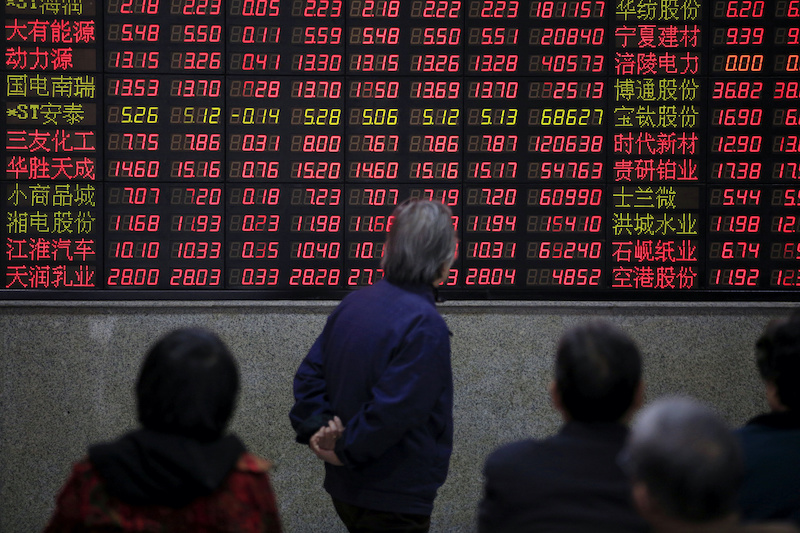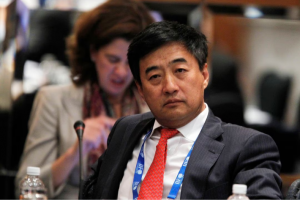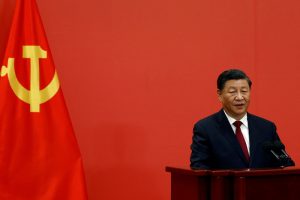Chinese stock investors are shunning the country’s big tech and property names and moving their money into green energy and chipmakers as the impact of President Xi Jinping’s “common prosperity” plan begins to be felt on trading floors.
China’s new energy index has surged more than 70% this year, while the property sector is down over 10% as portfolios are reshaped to fit with Beijing’s vision.
The intent behind Xi’s drive is a narrower gap between the rich and poor in the world’s second largest economy.
COMMON PROSPERITY INSIGHTS: Explainer: How ‘Common Prosperity’ is Changing China
But the first policy moves rattled markets as authorities introduced heavy new regulations on industries such as technology, property and private tuition, sending shares in those sectors tumbling.
While some active fund managers have shunned China for the time being, others have seen opportunities in an economy aiming for a larger and richer middle class.
Chinese policymakers “are talking about how to go from a pear-shaped type of economy, which is bottom-heavy, top-light, into an olive shape,” Ronald Chan, Hong Kong-based Asia head of equities at Manulife Investment Management, said. “They are talking about how to split the pie going forward.”
“Common prosperity” also embodies China’s desire for self-sufficiency in technology and energy and for industry to move up the value chain, said Chan, who has been buying Chinese solar energy companies while avoiding luxury spirit brands.
Manulife’s Greater China funds have also slashed holdings in tech giants such as Alibaba and Tencent over the past year, according to public disclosures.
Growing Middle Class
Among tech companies, those offering “hard” products and components have performed better than “soft technology”, such as online providers.
The KraneShares CSI China Internet ETF has plunged nearly 40% so far this year, while China’s start-up board ChiNext is up 13% and Shanghai’s hardware-heavy STAR Market, has barely budged.
“We’ve seen a lot of very extreme sentiment on China. Is it going back to Maoism? Is it investible?” said William Sterling, global strategist at GW&K Investment Management, which invests in emerging markets including China.
“It seems very, very unlikely that even with these new policy initiatives, the government would want to throw away the dynamism of the economy that the country’s capitalist engine has created.”
Sterling bets Chinese consumer stocks will benefit from a growing middle class, but is avoiding property firms and related sectors such as cement and steel.
Goldman Sachs has picked 50 “common prosperity” stocks in sectors including green and renewable energy, hard technology, higher-end manufacturing and mass but unique consumption brands.
Its list includes indigenous brands such as Xiaomi and Li Ning, chip makers Will Semiconductor and Hua Hong Semiconductor, as well as green energy companies LONGI Green Energy and Xinyi Solar.
Regulatory Headwinds
Goldman advises investors to shun sectors vulnerable to regulatory headwinds including luxury consumption, soft tech with high data intensity, along with education, property, media and entertainment.
Investors are already piling into electric vehicles and chipmakers.
China Universal CSI New Energy Vehicle Industry Index ETF has seen its assets under management (AUM) nearly triple to 9 billion yuan ($1.41 billion) this year, while the Guotai CES China Semiconductor Chips ETF has witnessed a near doubling in AUM.
In the medium term, “common prosperity” will improve the purchasing power of the lower-middle income group in China, benefiting consumer staples and the service sector including tourism, catering and affordable healthcare, Caro Liao, China economist at bond fund giant PIMCO, said.
“In the long run, a properly regulated business environment likely will benefit all investors, by reducing vulnerabilities in the system and ensuring a sustainable growth path.”
- Reuters with additional editing by Sean O’Meara
























